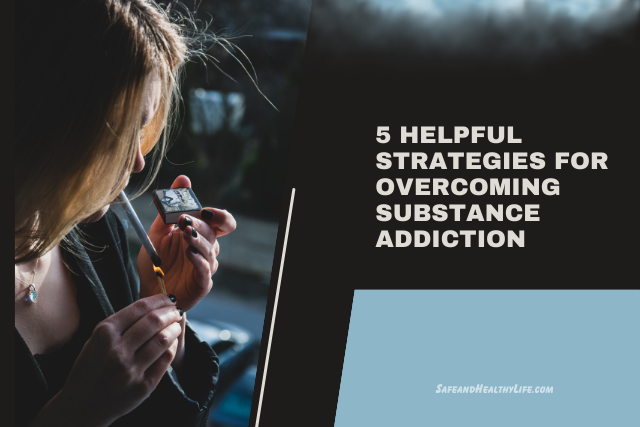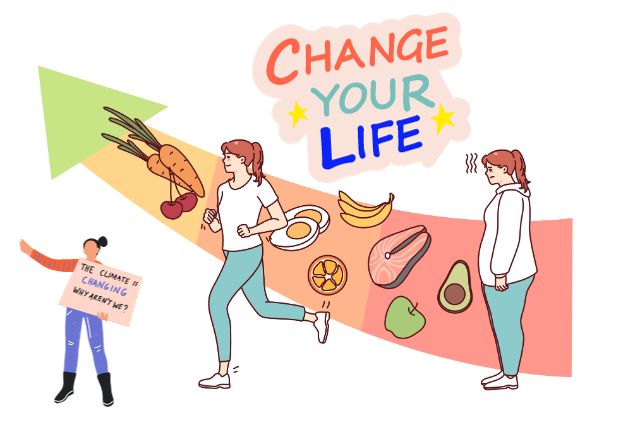
Substance abuse is a widespread problem affecting millions of people worldwide, causing physical, mental, and societal suffering.
Overcoming addiction is a difficult path, but it is possible to break free from the pattern of substance misuse with the correct tactics and support.
This post will look at five useful ways for addicts to overcome substance addiction, reclaim control of their lives, and begin the road to recovery.
1. Seek Professional Guidance
Seeking expert help is one of the most important steps in recovering from substance abuse. Many people are reluctant to ask for assistance, frequently out of fear.
However, addiction is a complicated problem that frequently requires specialist care and support. You can find help from resources like therapists, rehabilitation centers, and helpful substance abuse hotline services.
You’ll have the chance to speak with qualified counselors who can offer urgent aid and information when you call a Substance Abuse Hotline.
They can aid in your understanding of the various treatment alternatives, which can include detoxification, inpatient and outpatient programs, and counseling services catered to your particular requirements.
2. Build a Supportive Network

The fight against drug addiction is a team effort. A crucial part of the healing process is creating a network of friends and family who can assist you. Having supportive friends and family members around you might help you stay motivated and emotionally stable.
Sharing your challenges with those who are close to you helps foster more empathy and comprehension. Your loved ones can support you, acknowledge your accomplishments, and give you a sense of community.
Consider attending support groups or contacting those who have recovered from addiction. Finding great inspiration and knowledge from their experiences is possible.
3. Develop Coping Strategies
Addiction is frequently used as a coping mechanism for underlying emotional or psychological problems.
Creating healthy coping mechanisms that address the reasons for addiction is essential for overcoming substance addiction. Individuals can uncover these underlying difficulties and create appropriate coping mechanisms with therapy and counseling.
Dialectical behavior therapy (DBT) and cognitive-behavioral therapy (CBT) are evidence-based interventions that can assist people in identifying and altering harmful thought patterns and behaviors. These treatments teach how to control stress, manage emotions, and develop resilience.
4. Make Lifestyle Changes

Environments where using drugs or alcohol is permissible and encouraged frequently foster substance addiction. Making healthy lifestyle adjustments is crucial for overcoming addiction.
First, work on avoiding or managing the triggers and circumstances that contribute to substance misuse.
Recovery from addiction can benefit greatly from regular exercise. Exercise helps lower stress and anxiety, which are frequent relapse triggers because they release endorphins, natural mood enhancers.
Adopting a healthy, balanced diet is equally important because it can enhance general well-being and give the body the nutrition it needs to heal.
Enhancing your mental health is just as important as your physical health. The emptiness left by substance misuse can be filled by engaging in interests, hobbies, and activities that bring happiness and contentment.
Finding work, going to school, or volunteering can all help you feel more purposeful and structured in your life.
5. Set Realistic Goals
Addiction recovery is a process that takes time, effort, and patience. Setting manageable goals along the way will help you stay motivated and track your progress. Short-term and long-term goals can both focus on different facets of your life.
Short-term objectives could include attending regular therapy sessions, finishing a detoxification program, or quitting using drugs for a set amount of time. Rebuilding shattered relationships, finding secure employment, or maintaining sobriety are examples of long-term aims.
Setting and completing these objectives will strengthen your commitment to recovery and give you a sense of accomplishment. Celebrate every accomplishment, no matter how minor, because it shows that you are moving toward a healthier and more satisfying way of life.
Conclusion
Getting over drug addiction is hard, but it is possible with the right strategies and help. The recovery process involves several crucial steps, including seeking professional help, creating a supportive network, learning coping mechanisms, changing one’s lifestyle, and setting reasonable goals.
There is no one-size-fits-all strategy for recovery; remember that it is a personal journey for each person. It calls for commitment, tenacity, and a readiness to confront the underlying conditions that lead to addiction.
You can start down the path to a future free from addiction with the help of an abuse hotline and the application of these techniques.
About The Author:
Stacey Smith is a freelance health writer. She is passionate about writing about women’s health, dental health, diabetes, endocrinology, and nutrition and provides in-depth features on the latest in health news for medical clinics and health magazines.




